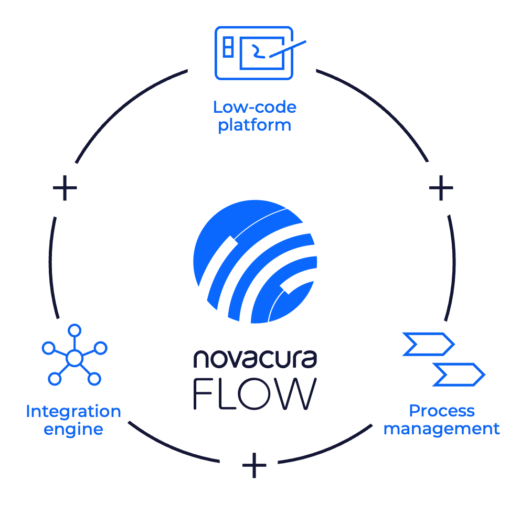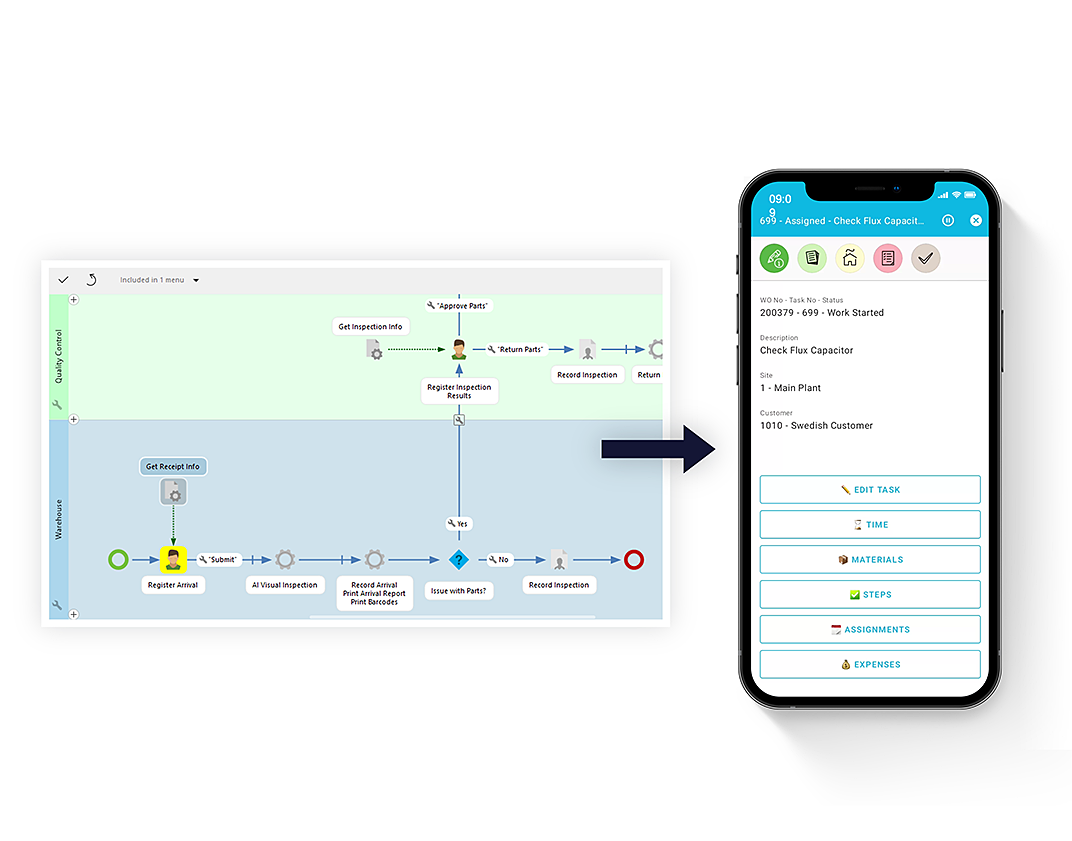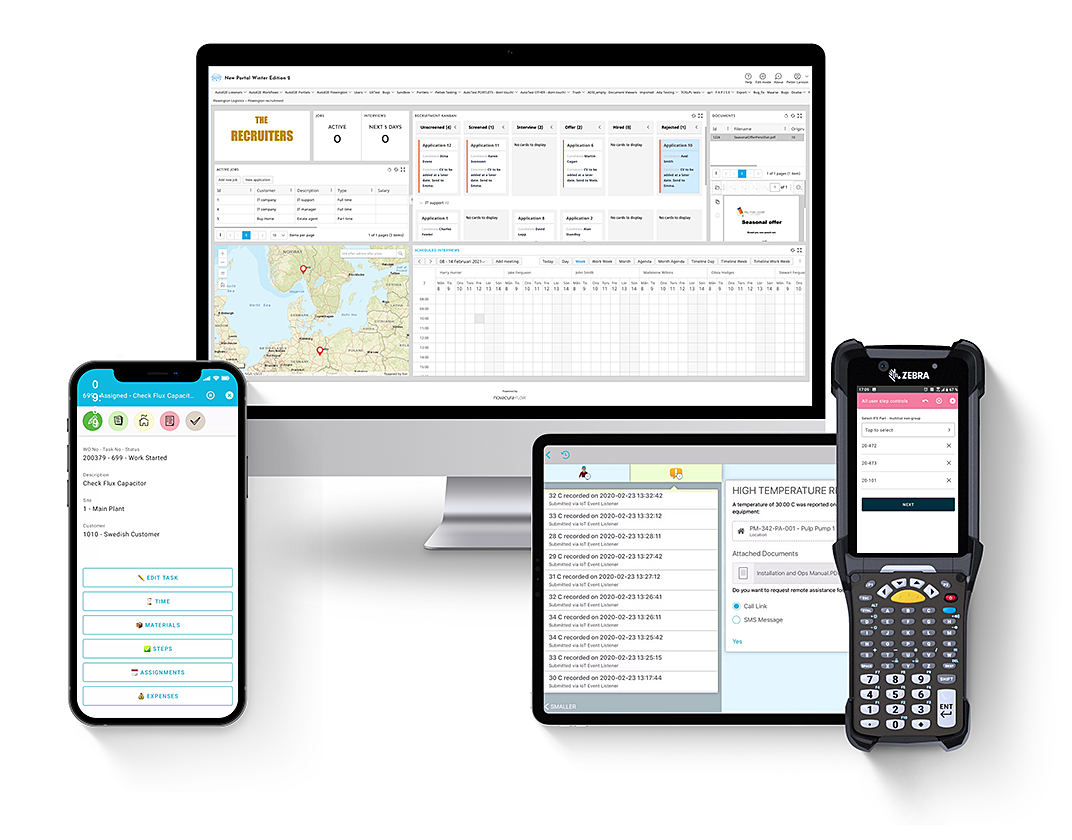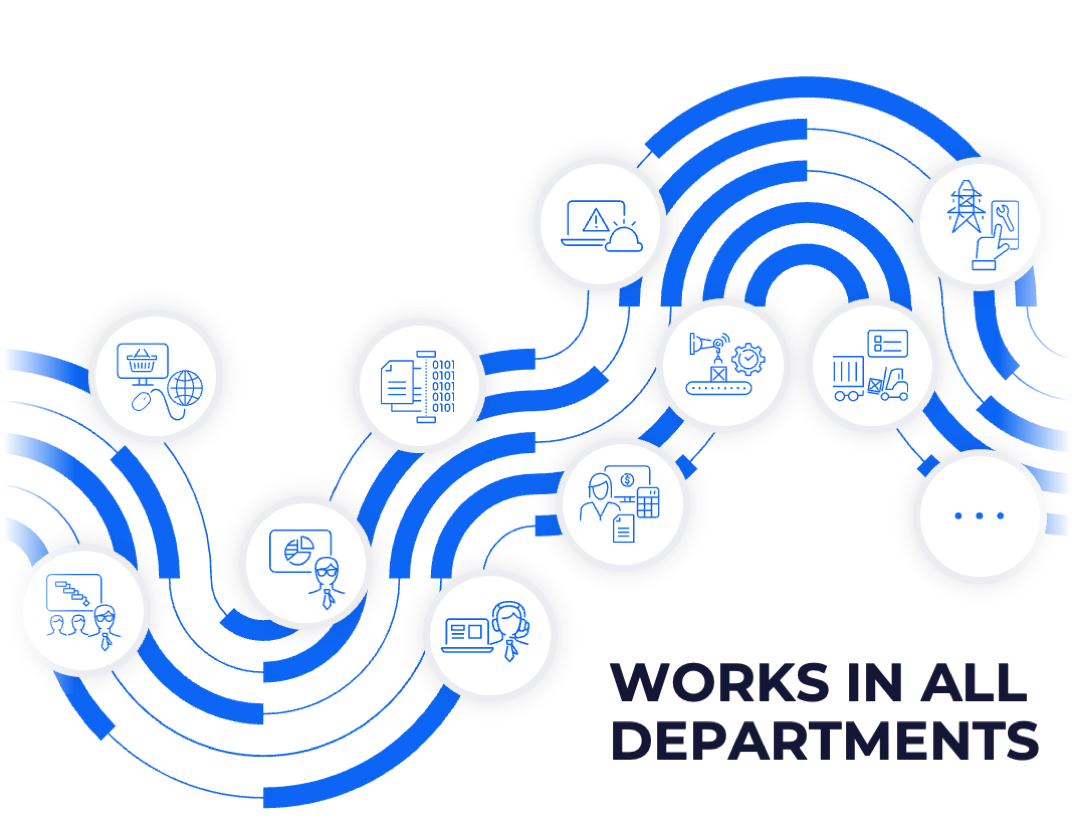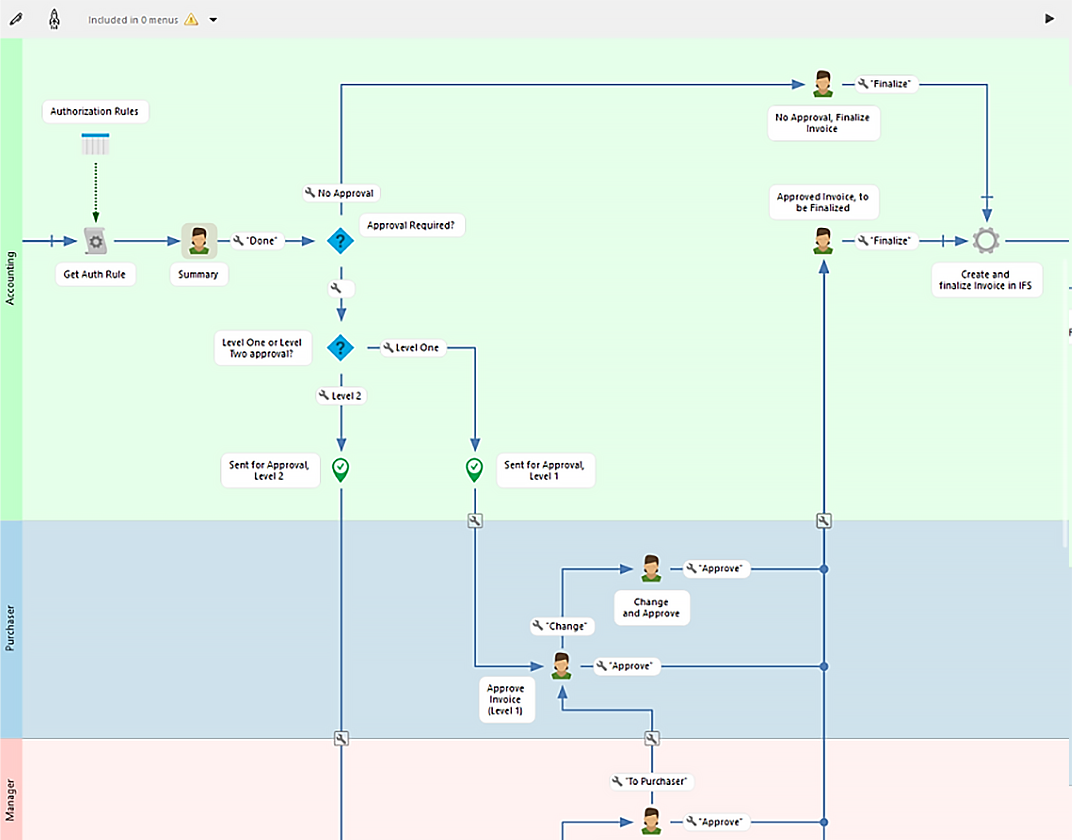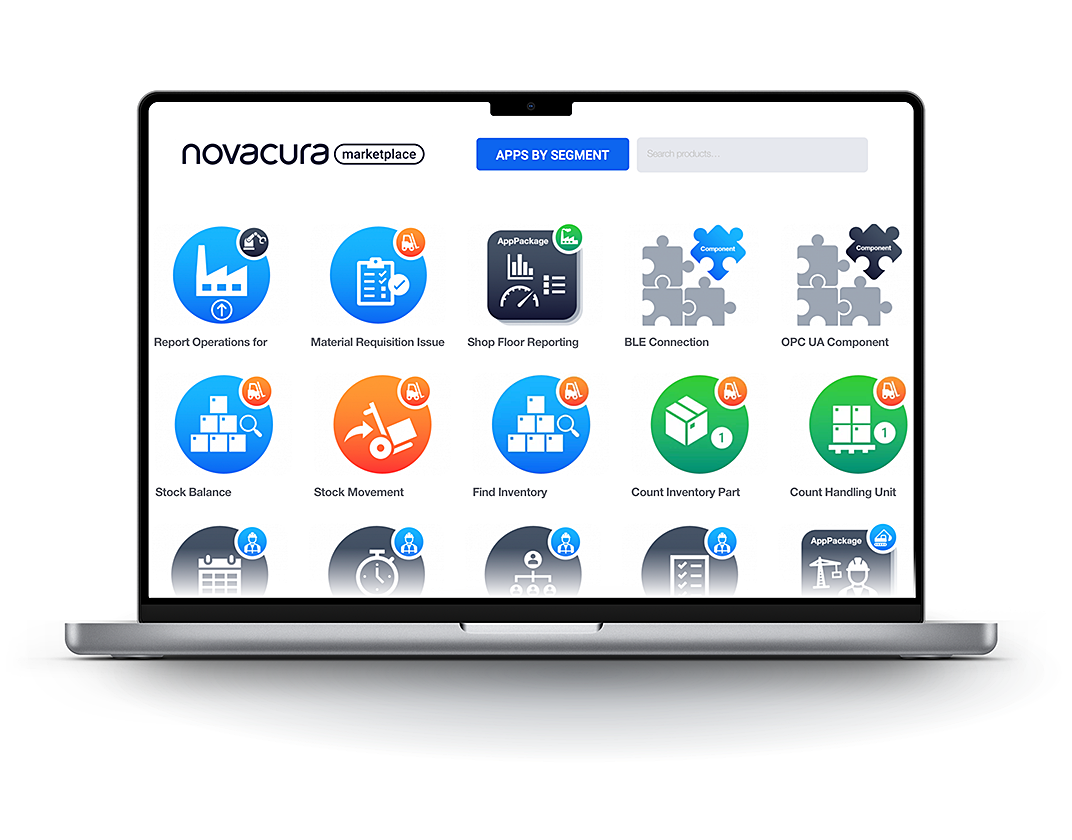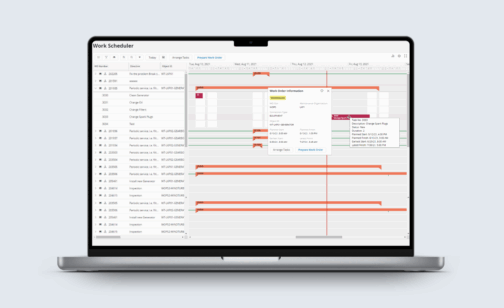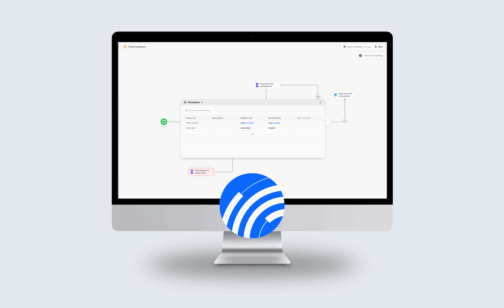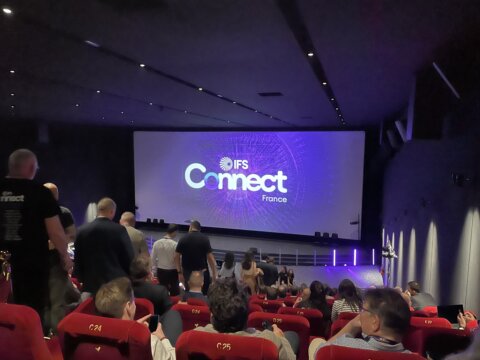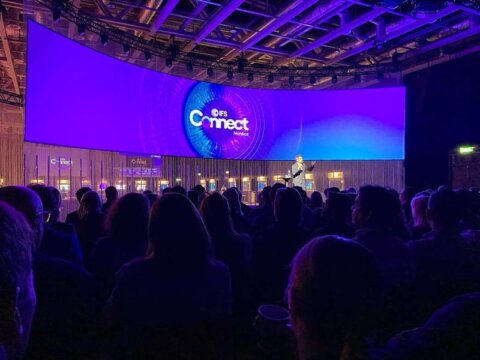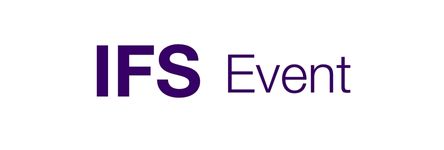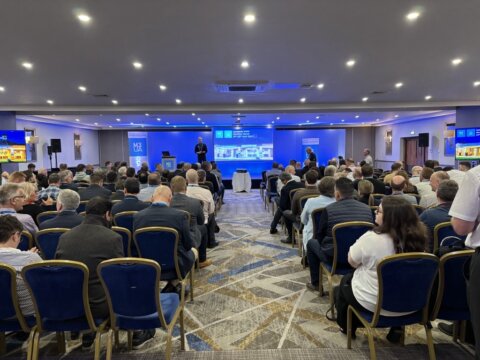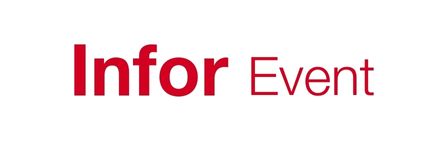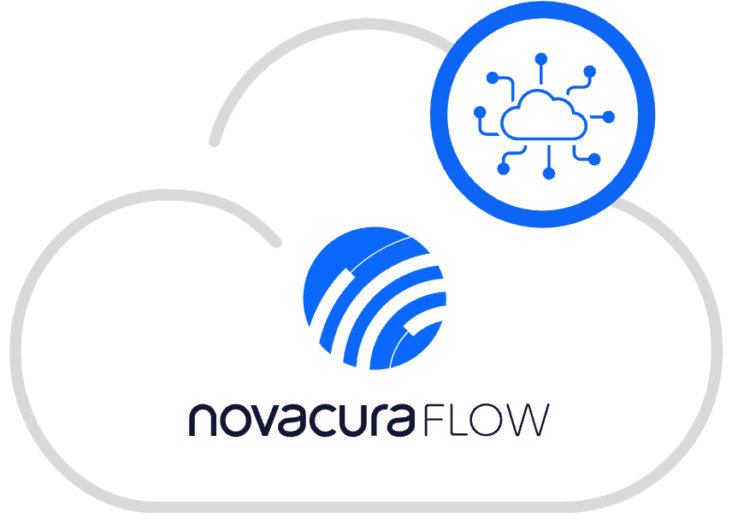IFS.ai Explained: Capabilities and Real-World Use in ERP Systems
Artificial intelligence is becoming an increasingly integrated part of modern ERP systems. Within IFS Cloud, IFS.ai offers a built-in suite of AI capabilities designed to support data analysis, automate workflows, and enable real-time decision-making. These features are embedded directly into the platform and available out of the box. This article takes a closer look at how IFS.ai contributes to operational efficiency within ERP environments. It also explores how low-code tools like Novacura Flow can extend and adapt these AI-driven capabilities to better fit the unique needs of different organizations. Understanding the Power of IFS.ai: Intelligent Decisions, Streamlined Operations IFS.ai is engineered to revolutionize business operations by offering a comprehensive suite of AI-driven features that enhance decision-making and optimize various functions. Here’s a closer look at its transformative capabilities: Optimized Efficiency: IFS.ai improves process efficiency and resource utilization, automating routine tasks and minimizing manual intervention. This leads to greater operational efficiency, freeing your workforce to focus on strategic initiatives. Ease of Implementation and Operation: A key advantage of IFS.ai is its embedded nature within the IFS Cloud, meaning it’s not a separate add-on but an integral part of the system. This “embedded, not bolted-on” approach simplifies deployment and reduces implementation complexities. Furthermore, the intuitive design, especially with features like the IFS.ai Copilot, makes it highly user-friendly. Employees can leverage AI-powered insights and tools without requiring extensive technical expertise, fostering rapid adoption and ensuring that the benefits of AI are accessible across all levels of the organization. Companies can explore and scale AI capabilities with clear value, without long lead times or complex implementations, enabling immediate and measurable results. Intelligent Decision-Making: By leveraging AI, IFS.ai transforms raw data into actionable insights across strategic, tactical, and operational levels. It supports enhanced decision-making through features like predictive maintenance in Enterprise Asset Management (EAM), intelligent financial management with AI-powered forecasting, and streamlined HR processes with AI-powered competency recommendations. Enhanced User Experience: The IFS.ai Copilot, a pivotal feature, offers AI-assisted guidance and timely knowledge, significantly improving decision-making and overall user experience. It can surface critical insights across the organization, assisting various roles from service leaders to production managers. Industry-Specific Applications: IFS.ai is embedded across key modules and tailored for specific industries, ensuring that the AI capabilities are highly relevant and impactful to diverse business needs. Read more on IFS.ai IFS.ai Integrations Across Key Modules and Capabilities IFS.ai delivers Artificial Intelligence across virtually all IFS Cloud capabilities, rather than being confined to specific, isolated modules. This pervasive integration means AI enhances functionality across: Enterprise Asset Management (EAM): Predictive maintenance, anomaly detection, FMECA (Failure Modes, Effects, Criticality Analysis) assistance. Field Service Management (FSM): Optimized scheduling, intelligent dispatch, service request routing, technician support. Manufacturing: Production scheduling optimization (MSO), demand planning, quality control, automated data capture from shop floor. Supply Chain Management: Inventory optimization, demand forecasting, logistics and transport planning. Finance: AI-powered forecasting, automated invoice processing, intelligent payment allocation. Human Capital Management (HCM): Competency and certificate recommendations, time management assistance. Projects: Project scheduling, risk assessment, resource allocation. Procurement: Supplier performance analysis, spend optimization. Sales & CRM: Sales […]
learn more
AI in ERP Systems: Benefits of Using Artificial Intelligence
The integration of artificial intelligence in ERP systems represents one of the most significant technological shifts in business software today.
learn more
Novacura Flow Quarterly News – Q2 2025: Key Product Updates and Roadmap Insights
On June 27th, 2025, Novacura hosted its Q2 Quarterly News webinar to share the latest product updates, feature enhancements, and future plans for the Novacura Flow Platform. This session provided users with a transparent view of ongoing development efforts, focusing on improvements to offline functionality, automation capabilities, migration tools, marketplace innovations, and upcoming AI-powered features. Below, we break down the main themes covered during the webinar, highlighting what users can expect now and in the coming quarters. Q2 Product Release Highlights: Enhancing User Experience and Functionality The Q2 release brought numerous improvements aimed at expanding both Flow Connect and Flow Classic environments: Offline Portal and Client EnhancementsBuilding on Q1’s offline data preloading, Q2 introduces the second portion of offline client capabilities – Async. With these two features combined, Novacura Flow Connect can now support seamless operations in low-connectivity environments like warehouses. The demo showcased an inventory management workflow, illustrating real-time stock monitoring and offline task assignments synced later.Portal Enhancements Portal added Interactions with the Custom Content Portal. These new interactions provide a new way of interacting with Portlets. Now, you can navigate seamlessly between Portal pages, external pages, or even start apps directly from the Custom Content Portlet. In the demo, Novacura showcased how this feature could be used for inventory management across multiple warehouse locations to present visually appealing dashboards that you can take action on. Advanced File System Integration The FileSystem connector has been introduced in Flow Connect. The new file system connector allows read and write capabilities to local or external file directories. In the demo, Novacura illustrated dynamic importing of CSV data, managing unexpected file structure changes by handling additional columns automatically. This new connector now means support for customers who use FileSystem connector on Flow Classic. Workflow Designer and Sync Improvements Upcoming visual updates to the Designer will clearly separate interactive user steps from async processes, enhancing clarity in offline sync workflows, especially for users transitioning between Classic and Connect. Translation Management System Future releases will introduce centralized translation storage supporting ICU formatting. This feature aims to simplify localization and ensure consistent multilingual user experiences. Gone are the days of translating the same phrase multiple times within different workflows. Now, with the Phrasebook, you can translate a statement once and reference it in all of your applications. Migration and Automation: Streamlining Workflow Modernization and Analytics Key advancements were announced for automation and migration capabilities: Import Wizard for OData Workflow Migration The new wizard simplifies converting Classic IFS OData workflows to Novacura Flow Connect Apps, using Flow Script OData modules compatible with IFS Cloud. This new feature automates connector mapping, module creation, and error identification during the import process, making modernization more accessible without rewriting workflows from scratch. Automation Analytics Dashboard A newly introduced dashboard tracks server-side Automation runs, monitoring triggers, success or failures, and detailed step-level performance. This visibility helps developers optimize automation health and troubleshoot issues promptly. Connector and Security Updates Improvements to the Connector Agent include faster token caching and expanded REST connector scripting. Additionally, new FileSystem connector operations support UNC paths and binary […]
learn more
Recap: Novacura Participates as Sponsor at IFS Connect France
Novacura was a sponsor at IFS Connect France, an event held on June 12th in Paris. This marked our final event before the summer break. The one-day event brought together the IFS community in France to highlight how industrial AI and IFS solutions are influencing various industries. Attendees participated in sessions focused on productivity, predictability, and agility, and had the opportunity to network with peers and partners. Novacura’s Presence in Paris The Novacura team was available on-site to discuss how Novacura Flow can enhance the value derived from an IFS system. Information on our latest solutions was available, and direct conversations with our team were possible at the booth. During the event, Rayner Bröndrup and Petter Larsson delivered a presentation titled “Your Business Your Way: Streamlined Business Apps in Few Hours – Built on IFS.” The presentation detailed how Novacura Flow, a low-code platform, can be used to create custom business applications that integrate with IFS and other systems. Key points from the presentation included: Industry Focus: Novacura Flow is applicable in sectors such as logistics, warehouse operations, manufacturing, auto construction, and energy. Core Capabilities: The platform supports shop floor reporting, integration with machinery, and barcode scanning for warehouse management. Specific applications for returnable package management, mobile delivery with sign-off and payment functions, and configurable B2B/internal portals were discussed. It also facilitates maintenance and service operations. Data Management and AI Integration: Novacura Flow aids in data cleanup within IFS, preventing duplicates, and improving data quality through smart applications and AI. It connects to various machine types via different protocols and can automate supplier invoice processing. Platform Characteristics: The presentation emphasized Novacura Flow’s low-code approach, enabling application configuration through visual flows. It supports cross-device publishing and allows for rapid process adjustments. Applications are designed for user simplicity and include industry-specific features like integrated barcode scanning and offline capabilities. IFS Integration: Novacura Flow connects with all IFS versions, ensuring consistent user experience during upgrades. It provides live, direct integration with IFS and offers a library of pre-built, customizable applications. The platform promotes an “extend on the outside” strategy, which simplifies IFS Cloud updates. Value Proposition: The combination of Novacura Flow and IFS enables the creation of tailored applications, aims to maximize IFS investment, and supports process optimization. The presentation video is available here: Summary Novacura sponsored IFS Connect France on June 12th in Paris, connecting with the IFS community to discuss industrial AI and IFS solutions. Our team showcased Novacura Flow, a low-code platform for building custom, integrated apps, highlighted in the presentation “Your Business Your Way: Streamlined Business Apps in Few Hours – Built on IFS,” which focused on process optimization and maximizing IFS value.
learn more
Novacura at IFS Connect Nordics (Sweden)
Novacura kicked off the month of May with an exciting presence at IFS Connect Nordics 2025, held on May 5–6 in Solna, Stockholm. The event gathered enterprise leaders, technology experts, and IFS users from across the Nordic region to share insights on how to drive innovation, improve resilience, and create long-term business value with IFS Cloud. As one of four conferences on our May calendar, IFS Connect Nordics provided the perfect platform for our team to engage with customers, discuss digital transformation strategies, and demonstrate how Novacura Flow helps extend and enhance the IFS ecosystem. Event Highlights: Cloud Strategy, AI, and Industry Insights This year’s agenda focused on the most pressing themes for IFS customers, offering both strategic overviews and in-depth customer stories. Key highlights included: The Next Chapter of IFS CloudA look into the latest developments and future roadmap for IFS Cloud, including AI integration and continued platform flexibility to support evolving enterprise needs. Manufacturing for a Digital WorldThis session explored how manufacturers are adapting operations through smart factory initiatives, cloud-enabled automation, and data-driven decision-making. AI in Training & OperationsSeveral talks emphasized how AI is reshaping not just software but also how employees are trained, empowered, and supported in their day-to-day workflows. Sustainability as StrategyReal-world examples showcased how IFS users are embedding sustainability into core business processes — not just as compliance, but as a competitive advantage. Throughout the event, the focus remained on how organizations can navigate rapid change, improve operational resilience, and harness the power of technology — especially AI and cloud — to remain agile in complex markets. At Booth No. 3, visitors had the opportunity to meet the Novacura team — Calle Göras, Fredrik Rosendahl, Östen Westman, and Ricard Lindgren — to learn how our low-code platform, Novacura Flow, empowers IFS customers to build tailored applications that bridge process gaps, reduce manual work, and improve user experience across departments. Whether the interest was in shop floor control system apps, workflow automation, or integration capabilities, we were thrilled to discuss how Novacura Flow can complement IFS Cloud and deliver fast, flexible business solutions. SUMMARY IFS Connect Nordics once again proved to be a valuable gathering of minds and a great showcase of the direction enterprise software is headed in the Nordic region. We’re proud to have been part of it, contributing to conversations around smart digital solutions for manufacturing and helping IFS customers get even more out of their systems. Thank you to everyone who stopped by our booth and shared ideas. We’re looking forward to continuing the dialogue at upcoming events throughout May — and beyond.
learn more
Novacura at M3UA UK Conference 2025: Showcasing Real-World Warehouse Optimization
As part of our ongoing event tour across the UK, Novacura was proud to participate in the M3UA UK Conference 2025, held on April 29 at the Leonardo Hotel Hinckley Island. This annual event brought together Infor M3 customers, experts, and partners to share insights and explore how to get more value out of their ERP environments. We were excited to return to this high-impact gathering — not only to connect with M3 users at our booth, but also to take the stage and present a powerful case study on warehouse operations optimization using Novacura Flow. Enhancing Full Pallet Picking with Novacura Flow At 16:30, Novacura’s Director of Sales, Aksel Jarlbäck, presented a customer case titled:“Enhancing Full Pallet Picking Efficiency with Novacura Flow.” The session addressed common challenges in traditional full pallet picking processes — such as manual scanning steps, repeated API calls, and process inefficiencies — which often result in delays, errors, and wasted time. Aksel walked the audience through a real-life implementation at a food and beverage company, showing how Novacura Flow was used to build a customized pallet picking application tailored to the customer’s needs. Key takeaways from the session included: How continuous scanning was implemented to streamline workflows How the app reduced manual input and operational time The measurable impact on accuracy and efficiency in the warehouse This case study provided a concrete example of how low-code automation can modernize M3 processes, especially in logistics-intensive environments. The audience had a chance to see how flexible application design — powered by Novacura Flow — can bridge ERP functionality gaps without requiring complex development or changes to the core system. SUMMARY Throughout the day, attendees also had the opportunity to stop by Novacura’s blue booth (#4) to meet Aksel Jarlbäck and Robin Huizer, discuss their own M3 challenges, and explore how low-code can be applied across operations — from warehousing to production and beyond. We were glad to engage with so many M3 professionals and share ideas on making ERP systems more user-friendly, efficient, and adaptable. Thanks to everyone who attended the session, visited our booth, and contributed to meaningful conversations. We look forward to returning next year and continuing the journey of ERP innovation — together.
learn more
 ..
..

